Getting off the bus, breathing in the fresh air, listening to the call of the mountains and forests, I silently thought about the uniqueness of the Thai village nestled among the Mong villages - a distinct highlight or a wonderful blend of cultures. Holding the small notebook, I began to write as usual for journalists - but this time, I wanted to slow down.

The steep and winding road made me feel nauseous, but when I saw the roofs looming between the mountains, all my fatigue disappeared. Although Mu Cang Chai commune is very high, the Thai people's way of choosing a place to build a house is the same forever and everywhere.
“Thai people live by the water” is a folk saying, referring to a way of life that relies on rivers and streams for farming and daily activities. Therefore, Ban Thai in Mu Cang Chai commune follows the winding stream, next to the long stretches of rice fields, creating a peaceful and memorable Ban Thai.
On the concrete road into the village, it is easy to meet friendly Thai people, who always welcome guests with gentle smiles and eyes as bright as streams. Ms. Dieu Thi Hien's homestay is the destination. My first impression is that here, everything happens very slowly, not because they are lazy but because they maintain the steady rhythm of nature.
On the first day in Ban Thai, I woke up early in the morning to the sound of rooster crowing. I followed the call to the yard and saw the flickering fire in the kitchen, with Ms. Hien gently stirring the pot of sticky rice. The purple sticky rice mixed with the scent of pandan leaves and the pungent smell of upland rice reminded me of the countryside meals of my childhood.
Thai people eat salty, full meals to start the working day, but their breakfast is not rushed, they sit in a circle, chat, tell each other about the news of the village. It seems that here, the meal is a connecting ritual.

The elders in the house told me about the rice season, how they selected the rice seeds, and the harvest. Each story was told slowly, accompanied by gentle gestures such as taking a bowl, scooping sticky rice, and giving each other delicious food. I suddenly realized that when people live slowly and eat slowly, they have time to talk, remember the origin of food, and appreciate the sweat and effort of themselves and the workers.
I followed Ms. Hoang Thi Ha, a Thai woman in her forties, to visit the fields. She wore a high bun, a dark black shirt, and her feet were marked with hard work. She walked slowly, holding a small knife in her hand. Visiting the fields was only a side job, Ms. Ha's main job was to pick vegetables for lunch.
With her hands nimbly cutting wild vegetables along the roadside, Ms. Ha slowly looked at the rice fields that were ripening. She talked about plowing and planting, each planting season being a repeating cycle, marking the transition between seasons, the interaction between humans and the earth.
She also told me about how her mother taught her how to plant rice in stages, how to listen to the sound of the rain to know when to sow and transplant. “My mother never talked much. She just did and showed me. Those actions were more important than words,” Ms. Ha told me.
I feel the Thai philosophy of life - living in the rhythm of the land, believing in traditional experience more than flowery words.
Night in the village is when adults gather together, especially for families running tourism businesses. There are not many phones, no noisy televisions; instead there is a flickering fire, whispering voices and stories told by the fire. I sat next to a village artist who played the flute and was invited to serve tourists at Ms. Hien's house. The flute's sound is deep and smooth, as if it encapsulates the nostalgia of the mountains in each note. The flute's sound calls each other, calls love, calls the coming and going seasons.
When the sound of the panpipe reaches its climax, the small circle dance begins. The girls and boys dance rhythmically to the bustling sound of the small drums. I see red eyes, shy smiles, and hands clasped tightly as if keeping a promise. Here, love is also cultivated slowly, without haste. The slow pace of life helps people take time for each other, to look, to understand, and to wait…

On the second day in Ban Thai, I sat under the porch of Ms. Hien's mother-in-law, Mrs. Luong Thi Quanh. Although Mrs. Quanh's family does not run a tourism business, they are very willing to welcome visitors. Mrs. Quanh told the legend of the Thai people of Tao Xuong and Tao Ngan, about the famine days... She told it in a real voice, detailing every detail, every name, every stream. I listened, took notes, and felt that the memories of the elderly are invaluable assets of the community.
She said: “Nowadays, children and grandchildren go far away and often forget their village. But the village is still there, like a stone in a stream, worn away by water but not lost.” Her words made me feel sad. Living slowly for the Thai people is not only about enjoying, it is also about preserving and conserving.
Not everything is peaceful here. I hear anxiety in the voices of young people, about education, work, migration. Many young girls leave their villages after graduating, go to the city to find work, hoping to change their lives, some return and some stay. The development of tourism has both sides, the economy increases, but cultural values are easily commercialized. Thai people here want to keep their identity, but also need to change to live better.
One rainy afternoon, I sat in the stilt house, listening to the rain falling on the roof, watching the water drops flowing through the cracks in the wood. I thought about how the Thai people here are doing tourism. They are taking full advantage of and exploiting culture and nature to create unique tourism products such as experiencing farming, making brocade, bathing in forest leaves... all creating a connection between people and nature, between modernity and traditional culture.
I also realized that I learned patience, hard work, waiting for the tree to grow, waiting for the next season. Success does not come overnight, but is a reward of time. Living slowly does not mean going back, it means choosing to live at a different pace, knowing how to wait and appreciate. Here, the concept of success is not only about money, but also about sustainability, a warm home, and a child growing up healthy in the village.
The special thing about the days in Ban Thai is that whether it is a worshiping meal or a normal meal, people still remember their ancestors as a thank you for giving them today's meal. I feel like I can touch their faith through the invitation to eat, through the act of raising the wine...

The day I left the village, the sky was clear, the early morning sun shone on each terraced field, sparkling with gold. I hugged the landlady, the Thai people were still as warm as when they welcomed me, creating beautiful memories for each guest. They gave me some potatoes, a bag of upland rice, a small, pretty brocade bag. I cherished each gift as a promise to return, to tell them, to keep these memories in my heart.
On the way down, I stopped at the bend, looked down at the valley, looked at the small roofs nestled in the mist. I told myself, living slowly in Ban Thai is a lesson that teaches us to look back at ourselves, to learn to listen, to appreciate the little things. I brought back to the city stories, faces, grains of rice and a different consciousness - reminding myself "in the midst of a hurried life, learn to live slowly, to love, to understand and to preserve".
Source: https://baolaocai.vn/song-cham-de-yeu-de-giu-gin-post884226.html


![[Photo] Opening of the World Cultural Festival in Hanoi](https://vphoto.vietnam.vn/thumb/1200x675/vietnam/resource/IMAGE/2025/10/10/1760113426728_ndo_br_lehoi-khaimac-jpg.webp)
![[Photo] Ho Chi Minh City is brilliant with flags and flowers on the eve of the 1st Party Congress, term 2025-2030](https://vphoto.vietnam.vn/thumb/1200x675/vietnam/resource/IMAGE/2025/10/10/1760102923219_ndo_br_thiet-ke-chua-co-ten-43-png.webp)


![[Photo] General Secretary attends the parade to celebrate the 80th anniversary of the founding of the Korean Workers' Party](https://vphoto.vietnam.vn/thumb/1200x675/vietnam/resource/IMAGE/2025/10/11/1760150039564_vna-potal-tong-bi-thu-du-le-duyet-binh-ky-niem-80-nam-thanh-lap-dang-lao-dong-trieu-tien-8331994-jpg.webp)

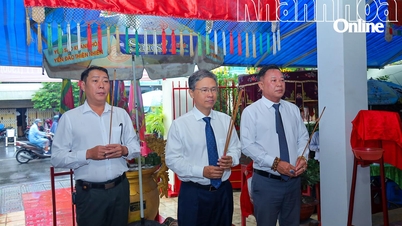



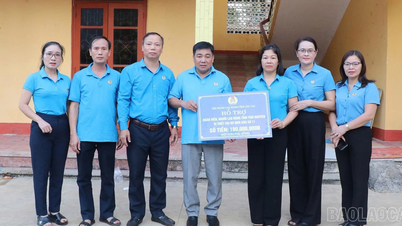
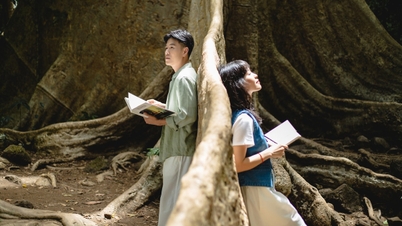

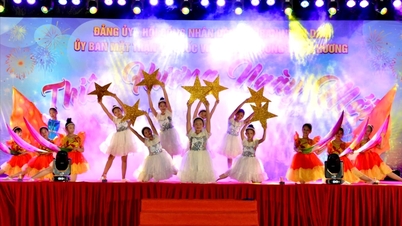
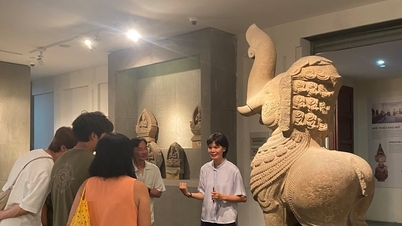






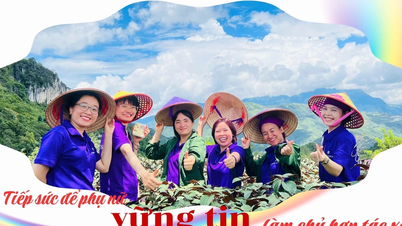


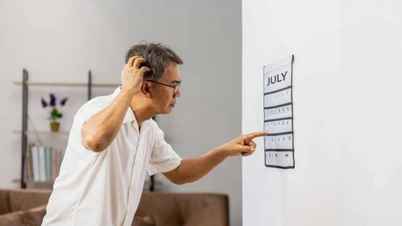
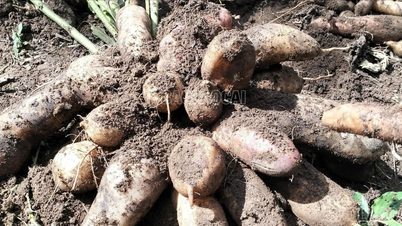
































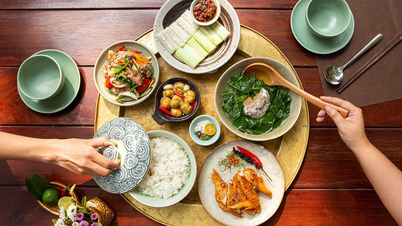
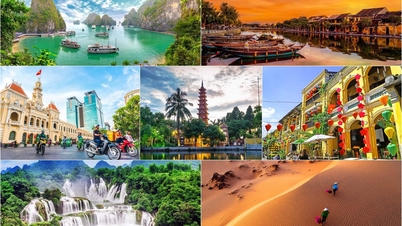









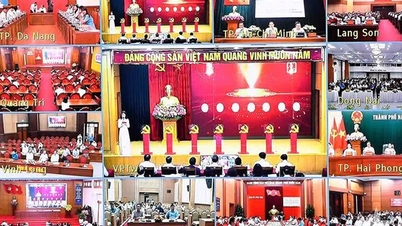


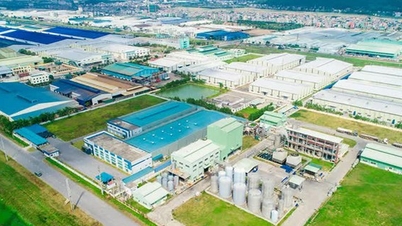
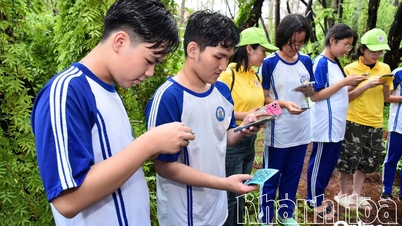



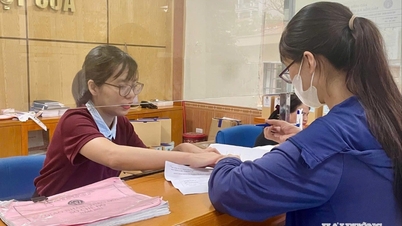


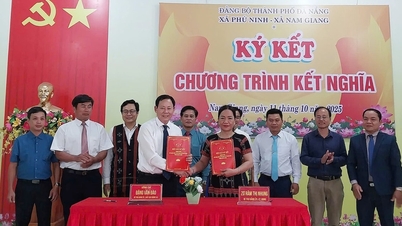















Comment (0)